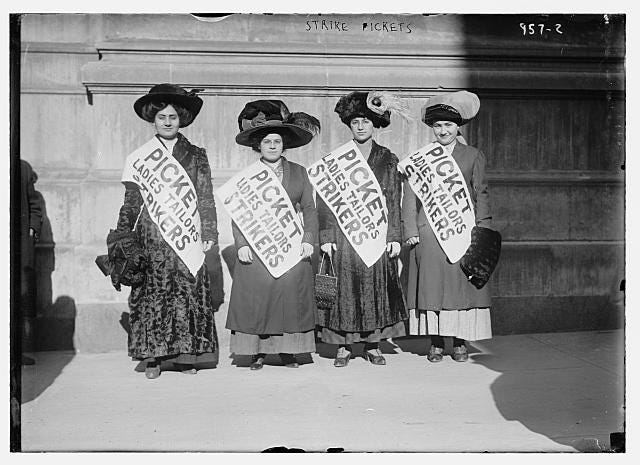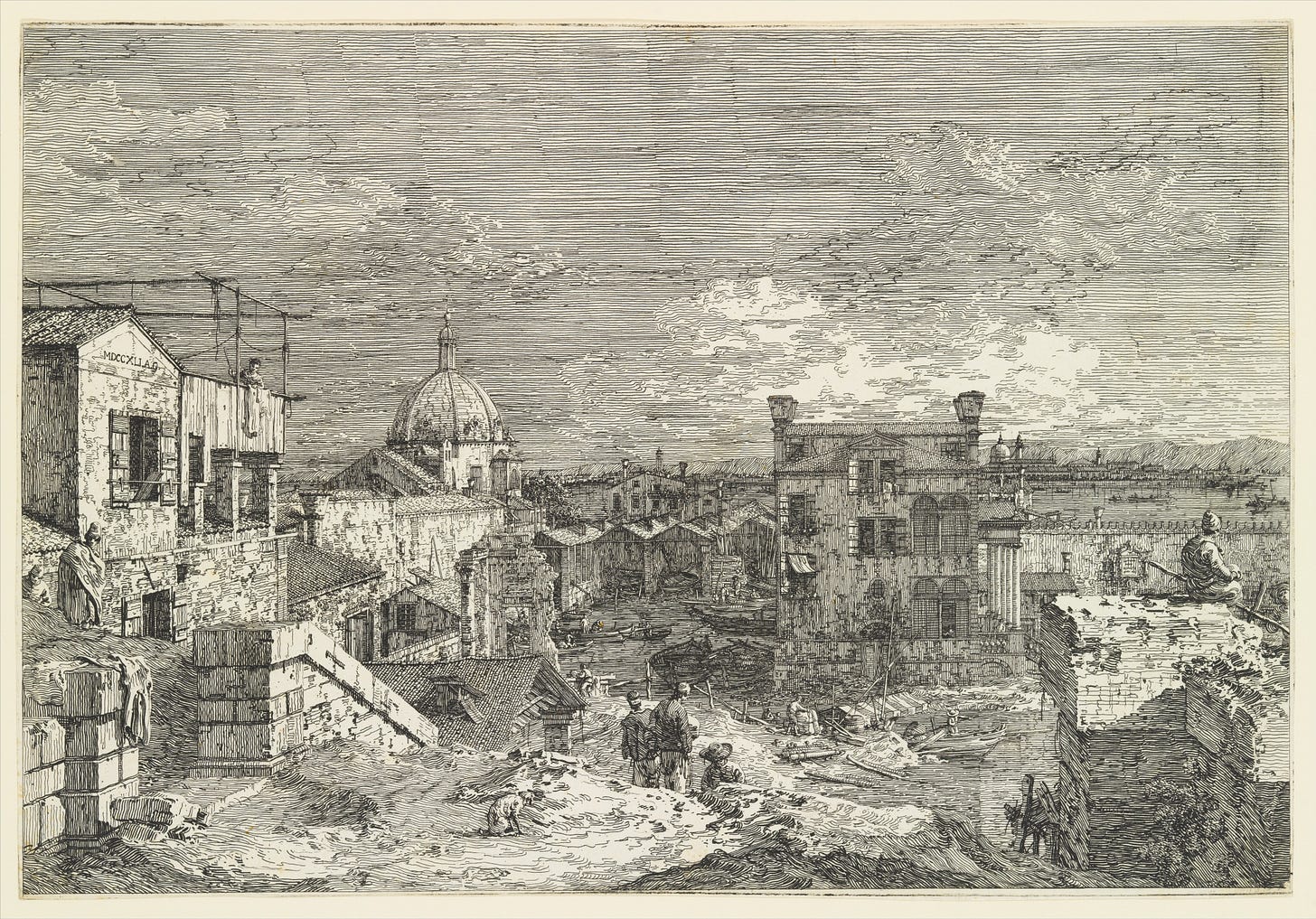Action, Pt 2 | The Human Condition
It is like a miracle that meaning should have a place in this world.
Apologies for the delay on this post. I usually wrap up my Arendt post on Sunday evening, but on Sunday afternoon I suddenly came down with some sort of stomach flu. Details, I think we can all agree, should not be shared, but the worst part was the lack of sleep; my mind was a haze, and so trying to write about Arendt on Monday or Tuesday still wasn’t an option.
But we persist. Today, we’ll finish the rest of the Arendt’s chapter on action, and then we’ll proceed according to the schedule:
January 19: Members-Only Zoom Call (8PM Eastern)
January 20: Chapter 6 The Vita Activa and The Modern Age (§35-40)
January 27: Chapter 6 The Vita Activa and The Modern Age (§41-45)
February 3: Final Thoughts
On Friday, I’ll send out a post that will also include the schedule for Le Guin’s The Dispossessed.
On January 19, we have a members-only Zoom call. If you’d like to join that call, please become a paying subscriber. You’ll also be supporting me on YouTube, making philosophical content available to all.
As we resume our reading of Arendt, we have to address the politics of labor. But that’s a fraught phrase for Arendt, who describes labor as antipolitical (as opposed to work, which is merely unpolitical). Labor ‘requires…the actual loss of all awareness of individuality and identity’, Arendt says when speaking of collective labor. And there is something to this. Often when we labor, it is important that we could at any time be replaced by anyone else suitably similar. The act of laboring together, instead of disclosing our identities to each other, renders meaningless the distinctions; we may feel we are ‘no longer an individual but actually one with all others.’
I’m reminded of my days working in a UPS warehouse slinging boxes into trucks — for UPS to function as it does, I have to function like anybody else who might occupy this role. Yet this laboring world was not an asocial world. I still remember, with real fondness, my conversations with fellow workers as we did our work.
And when workers get together and talk, they often start thinking about organizing. Thus, Arendt needs to say something about the labor movement.
Here are two facts which Arendt wants us to consider:
The working class has been extraordinarily successful with regard to politics. The rise in consciousness of workers (laborers, perhaps) as workers and the subsequent political organizing and maneuvering led to great victories. Even those of you who might be skeptical of unions these days – a subject for another time, perhaps – must admit that workers’ rights even 150 years ago were abysmal and that we have made substantial progress. The working class is behind that. Labor and politics somehow played nicely together.
The alternative forms of government put forward by peoples’ revolutions(the system of people’s councils) have failed. While the working class has gone from victory to victory, ‘the labor movement’ has been ‘defeated each time it dared to put forth its own demands.’
The point, Arendt wants to make, is that when the working class enters the political realm they have engaged in action and tried to disclose their identities through action and speech, but the alternative forms of government seem to ignore the identity of these actors. Maybe we could say that the success of the working class has been in making room for action again.
As we talked last week, the theme of constituting a polis came up several times. This is what speech and action can do, Arendt says. It builds a community. As one participant pointed out: when Arendt speaks of action, you could helpfully substitute interaction.
Action, even when instrumentalized and when politics is degraded, cannot be eliminated (see pg. 230); it is too much a part of the human condition. This is a ray of hope in Arendt’s rather melancholic reflections on the human condition — the realm of human affairs might be constrained by the laboring society we find ourselves in, but it cannot be wholly eliminated.
I’m reminded a bit of Zamyatin’s novel We, which is the precursor to Brave New World and 1984. In the novel, the protagonist (known by a string of characters resembling a barcode or a serial number) finds himself in a world of automation, routine, time tables. Yet he, and a few others, find that they crave something more. Those running this automated society diagnose the problem: they need to eliminate the human soul. This is what was behind the human urge to do great deeds, to speak great words, to recognize others as intrinsically unique (something we all share in common); it was also that fact about humanity which meant we could never be perfectly orderly.
I’m going to end with an extended passage from page 236; I think this is the most helpful, illuminating passage in the book so far:
We have that the animal laborans could be redeemed from its predicament of imprisonment in the ever-recurring cycle of the life process, of being forever subject to the necessity of labor and consumption, only through the mobilization of another human capacity, the capacity for making, fabricating, and producing of homo faber, who as a toolmaker not only eases the pain and trouble of laboring but also erects a world of durability. The redemption of life, which is sustained by labor, is wordliness, which is sustained by fabrication. We saw furthermore that homo faber could be redeemed from his predicament of meaninglessness, the “devaluation of all values,” and the impossibility of finding valid standards in a world determined by the category of means and ends, only through the interrelated faculties of action and speech, which produce meaningful stories as naturally as fabrication produces use objects…From the view point of the animal laborans, it is like a miracle that it is also a being which knows of and inhabits a world; from the viewpoint of homo faber, it is like a miracle, like the revelation of divinity, that meaning should have a place in this world.
It is action that provides this meaning.





Arendt writes, regarding the question of personal identity, the following: “. . . it is more than likely that the ‘who,’ which appears so clearly and unmistakably to others, remains hidden from the person himself, like the daimon in Greek religion which accompanies each man throughout his life, always looking over his shoulder from behind and thus visible only to those he encounters.”
This morning I read two tributes to David Lynch, the visionary film director who passed away on Thursday.
Kyle MacLachlan wrote: “Forty-two years ago, for reasons beyond my comprehension, David Lynch plucked me out of obscurity to star in his first and last big budget movie. He clearly saw something in me that even I didn’t recognize.” And Naomi Watts wrote: “The world I’d been trying to break into for ten plus years, flunking auditions left and right. Finally, I sat in front of a curious man, beaming with light, speaking words from another era, making me laugh and feel at ease. How did he even ‘see me’ when I was so well hidden, and I’d even lost sight of myself?!”
To those of us who’s been wondering “Who am I?” Arendt suggests that the answer cannot be found through solitary introspection alone; but rather, will only be revealed through our actions, our deeds and words with others, in the public sphere.
When we think about labor, work, and action and how those three components are a part of the human condition, what I've been trying to do is understand what that does for our understanding of ourselves. When I break down these three characteristics and compare us to certain other species I find that these traits can be used to describe other animals like dolphins, ants, or bee's (given they could use some help on the homo faber trait) in very similar ways.
I am waiting to see what Ardent plans for us to do with this information. Does anyone have any theories how she will apply these conditions to our daily lives as we move into the final chapter?